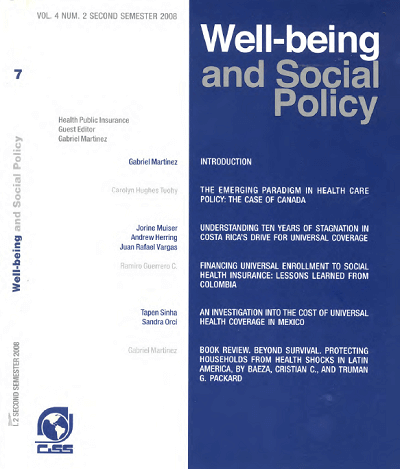
This study analyzes achievements and obstacles in the process of moving towards universal coverage of essential health care services in Costa Rica. It describes the country as exemplary in the region, both in terms of population health status as well as health financing indicators. Life expectancy and the level of pre-payment are both comparable to high income countries. However, the process that implied a step-by-step inclusion ofsocio-economic population groups roto a single social health insurance fund scheme, which produced its main achievements in the period 1950 - 1970, stagnated in the early nineties. Except for a qualitative analysis of the design and current performance of Costa Ricas health financing system, this paper presents the results of a cross sectional analysis of the 2006 National Health Survey indicating that not only affluent but also marginalized groups are currently excluded from the scheme despite Costa Rica 's universal coverage health policy.
